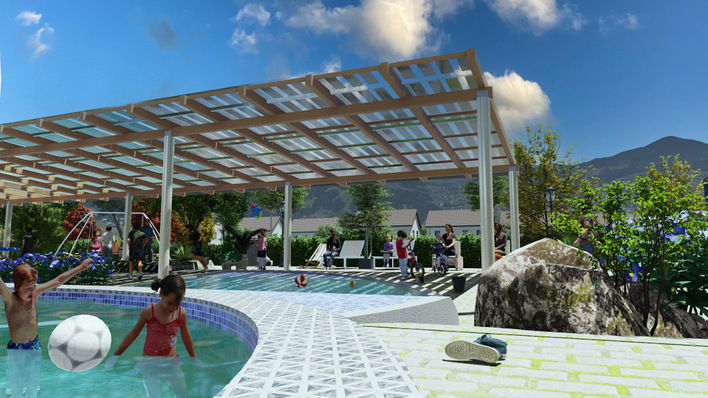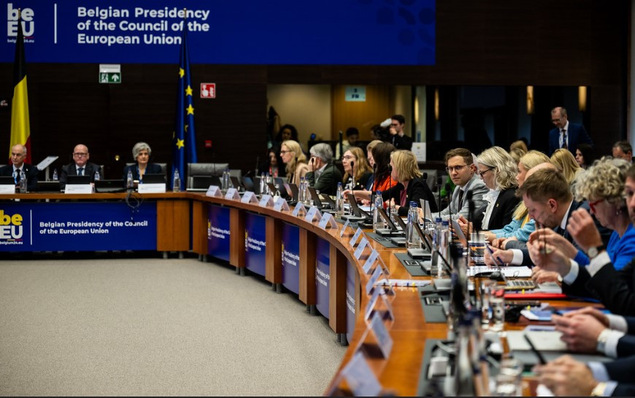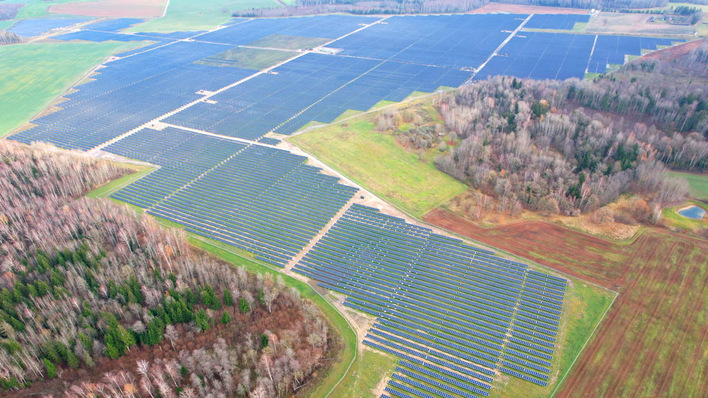Fraunhofer ISE has been developing photovoltaic technologies, since it was founded forty years ago. Over this period, the institute’s research has contributed significantly to the establishment of solar electricity today as the most cost-effective form of energy supply worldwide.
In order to maintain and strengthen its global leadership position in solar energy research, Fraunhofer ISE has now gained a new laboratory building, which was funded in equal parts by the German Federal Ministry of Education and Research BMBF and the State of Baden-Württemberg.
Inauguration of the new Fraunhofer ISE laboratory building
The new Center for High Efficiency Solar Cells was officially opened on April 27, 2021 in a virtual ceremony. In his welcoming address on the occasion of the inauguration of the new Fraunhofer ISE laboratory building, Minister President Winfried Kretschmann said: "In Baden- Württemberg, we have set ourselves numerous goals for climate policy, and solar energy plays a central role“.
„With Fraunhofer ISE, we have had one of the most important solar research institutes worldwide right here in the State of Baden-Württemberg for over 40 years. I am therefore very pleased that we are again able to give cutting-edge photovoltaic research a powerful boost with the Center for High Efficiency Solar Cells, which I have the pleasure of inaugurating today, moving us towards becoming the number one climate- friendly state of the future“, Kretschmann said.
Focus on highly efficient tandem cells
With an infrastructure composed of 1000 square meters of laboratory space and state- of-the-art clean room equipment, the Center for High Efficiency Solar Cells is equipped to address the new technological challenges. In addition to the further development of silicon and III-V technology, the research focus at Fraunhofer ISE’s new center lies in the suitable combination of these two materials to make highly efficient tandem cells, which are among the most promising photovoltaic technologies for the future.

Fraunhofer ISE/Guido Kirsch
"The new laboratory building will enable us to continue developing new groundbreaking solar cell types and thus contribute to the competitiveness of the German and European photovoltaic industry, which is again on the rise with innovative processes and technologies,” says Institute Director Prof. Andreas Bett. "At the same time, this inauguration is an important milestone for German and European technological sovereignty. We are very grateful to the German Federal Ministry of Education and Research and the State of Baden-Württemberg for their support.”
Potential of PV technology far from exhausted
Along with wind energy, photovoltaics is the central pillar of the energy transition. In recent decades, photovoltaics has undergone rapid technological development, experiencing a cost reduction of more than 90% and an increase in module efficiency, reaching 20% today. However, the potential of this technology is far from exhausted.
Solar researchers in Freiburg are working to further increase the efficiency using the tandem approach. In tandem solar cells, several semiconductor materials with different absorption properties are stacked on top of each other in order to use the solar spectrum even more efficiently for energy generation. Tandem photovoltaics enables higher energy yield per unit area and thus potential savings in solar cell and module materials. This makes photovoltaics even more sustainable.
Largest solar research institute in Europe
Fraunhofer ISE is the largest solar research institute in Europe, with more than 1200 employees, almost half of whom perform research in photovoltaics. The other half of the institute is dedicated to research themes involving energy systems and technologies relevant to the energy transition. The institute holds numerous efficiency records in photovoltaics for different solar cell technologies: Most recently these include the newly published record efficiency for both-sides contacted silicon solar cells (26.0 %) and that for tandem cells on silicon (35.9 %).
Also, records were achieved for a four- junction solar cell under concentrated sunlight (46 %, based on a III-V multi-junction cell architecture). "In addition to the efficiency records, we at Fraunhofer ISE are particularly proud of our developments in PV production technology. These research developments have provided important impulses to industrial solar cell production, such as the use of lasers or the TOPCon technology," says Prof. Stefan Glunz, Division Director of Photovoltaic Research and Professor in Faculty of Engineering at the University of Freiburg. "With our new laboratory building, the new clean room and its cutting-edge infrastructure, we are now even better equipped to continue this success story." (hcn)
Did you miss that? New laser-based contacting process developed for solar cells







